Related Research Articles

Alan Alexander Milne was an English writer best known for his books about the teddy bear Winnie-the-Pooh, as well as for children's poetry. Milne was primarily a playwright before the huge success of Winnie-the-Pooh overshadowed all his previous work. He served in both world wars, as a lieutenant in the Royal Warwickshire Regiment in the First World War and as a captain in the Home Guard in the Second World War.
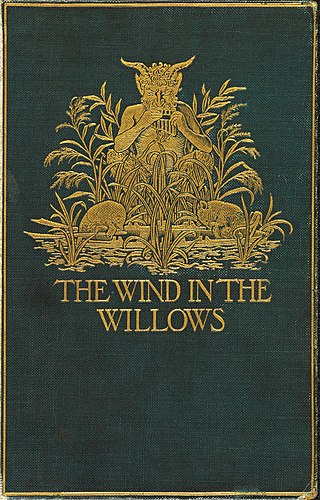
The Wind in the Willows is a classic children's novel by the British novelist Kenneth Grahame, first published in 1908. It details the story of Mole, Ratty, and Badger as they try to help Mr. Toad, after he becomes obsessed with motorcars and gets into trouble. It also details short stories about them that are disconnected from the main narrative. The novel was based on bedtime stories Grahame told his son Alastair. It has been adapted numerous times for both stage and screen.

Toad of Toad Hall is a play written by A. A. Milne – the first of several dramatisations of Kenneth Grahame's 1908 novel The Wind in the Willows – with incidental music by Harold Fraser-Simson. It was originally produced by William Armstrong at the Playhouse Theatre, Liverpool, on 21 December 1929. It was given in the West End the following year, and has been revived frequently by many theatrical companies.

Sir Kenneth Charles Branagh is a British actor and filmmaker. Born in Belfast and raised primarily in Reading, Berkshire, Branagh trained at RADA in London and served as its president from 2015 to 2024. His accolades include an Academy Award, four BAFTAs, two Emmy Awards, a Golden Globe Award, a Screen Actors Guild Award, and an Olivier Award. He was appointed a Knight Bachelor in the 2012 Birthday Honours, and was given Freedom of the City in his native Belfast in 2018. In 2020, he was ranked in 20th place on The Irish Times' list of Ireland's greatest film actors.

Kenneth Gilbert More, CBE was an English film and stage actor.

Margaret Mary Day Lockwood, CBE, was a British actress. One of Britain's most popular film stars of the 1930s and 1940s, her film appearances included The Lady Vanishes (1938), Night Train to Munich (1940), The Man in Grey (1943), and The Wicked Lady (1945). She was nominated for the BAFTA Award for Best British Actress for the 1955 film Cast a Dark Shadow. She also starred in the television series Justice (1971–74).

Lee Hall is an English writer and lyricist. He is best known for writing the screenplay for the film Billy Elliot (2000) and the book and lyrics for its adaptation as a stage musical of the same name. In addition, he wrote the play The Pitmen Painters (2007), and the screenplays for the films War Horse and Rocketman (2019).

Peter John Sallis was an English actor, known for his work on British television. He was the voice of Wallace in the Academy Award-winning Wallace and Gromit films and played Norman "Cleggy" Clegg in Last of the Summer Wine from its 1973 inception until the final episode in 2010, making him the only actor to appear in all 295 episodes. Additionally, he portrayed Norman Clegg's father in the prequel series First of the Summer Wine.

Kenneth George Hall was an Australian film producer and director, considered one of the most important figures in the history of the Australian film industry. He was the first Australian to win an Academy Award.
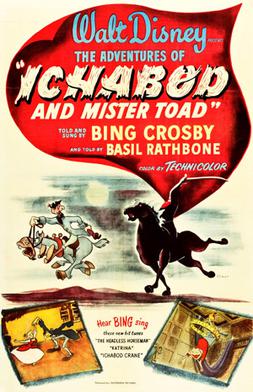
The Adventures of Ichabod and Mr. Toad is a 1949 American animated anthology film produced by Walt Disney Productions and released by RKO Radio Pictures. It consists of two segments: the first based on Kenneth Grahame's 1908 children's novel The Wind in the Willows and narrated by Basil Rathbone, and the second based on Washington Irving's 1820 short story The Legend of Sleepy Hollow and narrated by Bing Crosby. The production was supervised by Ben Sharpsteen, and was directed by Jack Kinney, Clyde Geronimi, and James Algar.
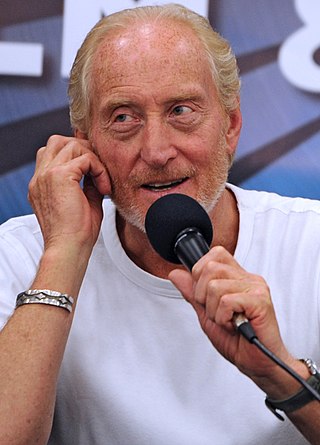
Walter Charles Dance is an English actor. He is known for playing strict, authoritarian characters and villains. Dance started his career on stage with the Royal Shakespeare Company (RSC) before appearing in film and television. For his services to drama he was appointed an Officer of the Order of the British Empire (OBE) by Queen Elizabeth II in 2006.
Shirley Rosemary Stelfox was an English actress, known for her portrayal of the character Edna Birch, a moralising busybody in the ITV soap opera Emmerdale, and as Rose, the vampy sister of the snobby and overbearing Hyacinth Bucket in the first series of the comedy series Keeping Up Appearances.

The Wind in the Willows is a 1996 British adventure comedy film based on Kenneth Grahame's 1908 novel The Wind in the Willows, adapted and directed by Terry Jones, and produced by Jake Eberts and John Goldstone. The film stars Terry Jones, Steve Coogan, Eric Idle and Nicol Williamson. While positively regarded, it was a box office bomb and had distribution problems in the United States.
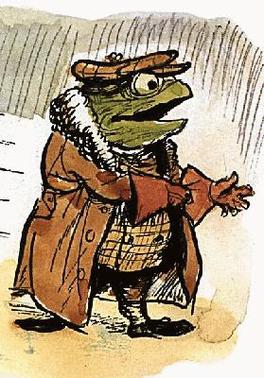
Mr. Toad, of Toad Hall, is one of the main characters in the 1908 novel The Wind in the Willows by Kenneth Grahame.
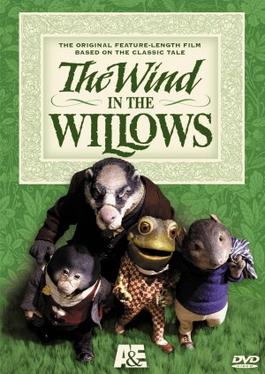
The Wind in the Willows is a 1983 British stop motion animated film produced by Cosgrove Hall Productions for Thames Television and aired on the ITV network. The film is based on Kenneth Grahame's classic 1908 novel The Wind in the Willows. It won a BAFTA award and an international Emmy award.
The Wind in the Willows is a British stop motion animated television series that was originally broadcast between 1984 and 1988, based on characters from Kenneth Grahame's 1908 novel The Wind in the Willows and following the 1983 feature-length pilot film.

Richard Percy Herbert Goolden, OBE was a British actor, most famous for his portrayal of Mole from Kenneth Grahame's 1908 children's book The Wind in the Willows in A A Milne's 1929 stage adaptation, Toad of Toad Hall.

Foxwarren Park, at Wisley in Surrey, is a Victorian country house and estate. On sandstone Ockham and Wisley Commons, it was designed in 1860 by the railway architect Frederick Barnes for brewing magnate and MP, Charles Buxton. It is a Grade II* listed building.
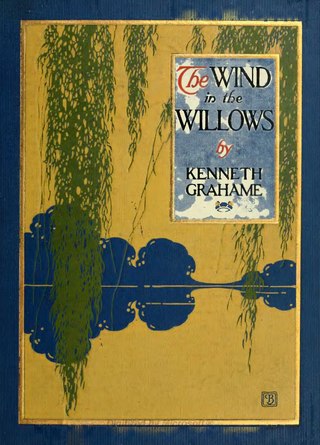
Toad Hall is the fictional home of Mr. Toad, a character in the 1908 novel The Wind in the Willows by Kenneth Grahame.
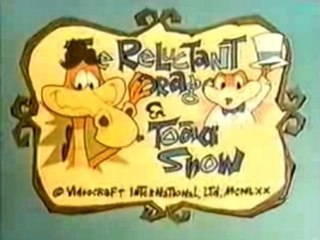
The Reluctant Dragon & Mr. Toad Show is a 1970 American animated television series that aired on ABC's Saturday morning schedule. The show features two characters created by British children's writer Kenneth Grahame: the Reluctant Dragon from the 1898 short story of the same name, and Mr. Toad from the 1908 novel The Wind in the Willows. The show was created by Rankin/Bass Productions in New York City, who produced 17 episodes. The show was a flop and canceled midway through its first season, airing from September 12 until December 26, 1970. ABC aired reruns of the show on Sunday mornings during the 1971–72 season. Copies of all 17 episodes were deposited at the Library of Congress, but only 8 episodes from other sources have been made publicly available as of 2024.
References
- ↑ "TV Guide". The Daily Telegraph. 28 December 1946. p. 6.
- ↑ "Toad of Toad Hall · British Universities Film & Video Council". bufvc.ac.uk.
- ↑ Vagg, Stephen (16 April 2023). "Surviving Cold Streaks: Kenneth More". Filmink. Retrieved 29 January 2024.
- ↑ "In Royal command film". West London Press, Westminster and Chelsea News. 3 December 1948. p. 5.
- ↑ More, Kenneth (24 October 1959). "'Take him away!'". Manchester Evening News. p. 3.